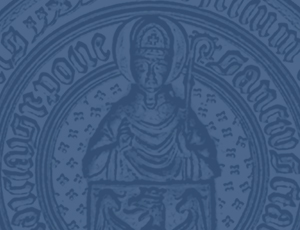Head of the PhD study programme:
dr hab. Szymon Godlewski, prof. UJphone: +48 12 664 4605
szymon.godlewski@uj.edu.pl
PhD study programme Office:
mgr Ewa Lelekphone: +48 12 664 4894
ewa.lelek@uj.edu.pl
 Web Content Display
Web Content Display
Web Content Display
Web Content Display
 Breadcrumb
Breadcrumb
Breadcrumb
Breadcrumb
 Web Content Display
Web Content Display
Web Content Display
Web Content Display
 Web Content Display
Web Content Display
Web Content Display
Web Content Display
The PhD programme in physics involves a combination of courses, the completion of an original, scholarly piece of research that is then presented as a PhD dissertation and the academic internship mainly focused on academic teaching skills. The courses available within the PhD programme in physics are in form of lectures, classes, seminars, tutorials, computer labs and others. They cover various fields in physics and PhD student together with supervisor decide which offered courses are most compatible with needs and interests of given student and his individual research programme. Total minimum number of 40 ECTS points have to be collected during the programme, which allows our PhD students to focus on their scientific research.
The research activities of the department are broad and cover practically all fields of physics, both in theory and experiment. For a more detailed description of research areas, see the website of the Faculty of Physics, Astronomy and Applied Computer Science of the JU. Specifically, have a look at the Institute Departments of the M.Smoluchowski Institute of Physics and Departments of the Institute of Theoretical Physics to find various departments and research groups.
The M.Smoluchowski Institute of Physics conducts, mainly experimental, research into physics of:
In the Institute of Theoretical Physics research in various branches of modern theoretical physics are carried out:
Interdisciplinary research are also conducted in the areas of cognitive and brain sciences, quantum computing, artificial intelligence and machine learning.
Apart an experienced scientific stuff, a large international group of younger scientists is involved in the research: postdoctoral fellows and PhD students. Interdisciplinary and inter-departmental research activities also are possible. We also conduct extensive international collaborations what brings opportunities to visit our collaborators in their home institutions. These make that Ph.D studies in physics at the Jagiellonian University are a perfect start to the development of an international scientific career.
 Web Content Display
Web Content Display
Web Content Display
Web Content Display
 Web Content Display
Web Content Display
Web Content Display
Web Content Display
Pursuant to § 7 sections 1 and 3 of Resolution No. 91/IX/2021 of the Senate of the Jagiellonian University of 29 September 2021 on: the rules of recruitment for the Doctoral School of Exact and Natural Sciences at the Jagiellonian University in the academic year 2022/2023, the Director of the Doctoral School of Exact and Natural Sciences announces a competition for 1 doctoral student with a scholarship financed from the research project funds as part of the 4-year PhD programme in Physics.
Within the NCN-funded SONATA BIS project entitled Holographic connections between quantum fields, information, and gravity, a commission set up at the School will conduct recruitment for the PhD study programme Physics.
The project manager, Dr. Mario Flory, offers an opportunity to complete the doctorates in the following area: ”Quantum information aspects of holography”.
After the interviews and the evaluation of the candidates, the Chairman of the committee presents a report to the Director containing a list of candidates recommended for admission to the school as part of the research project.


